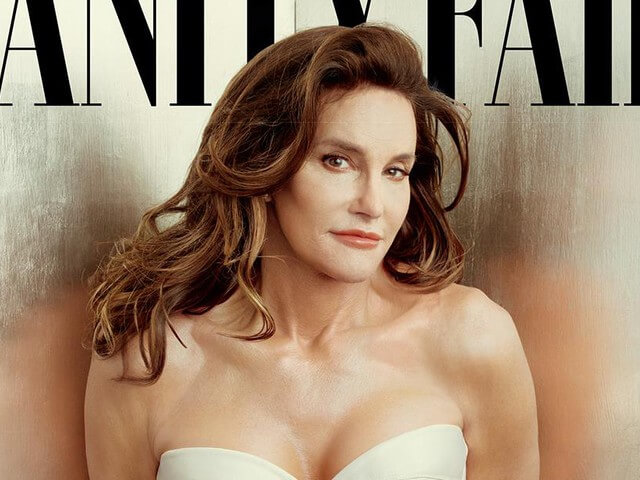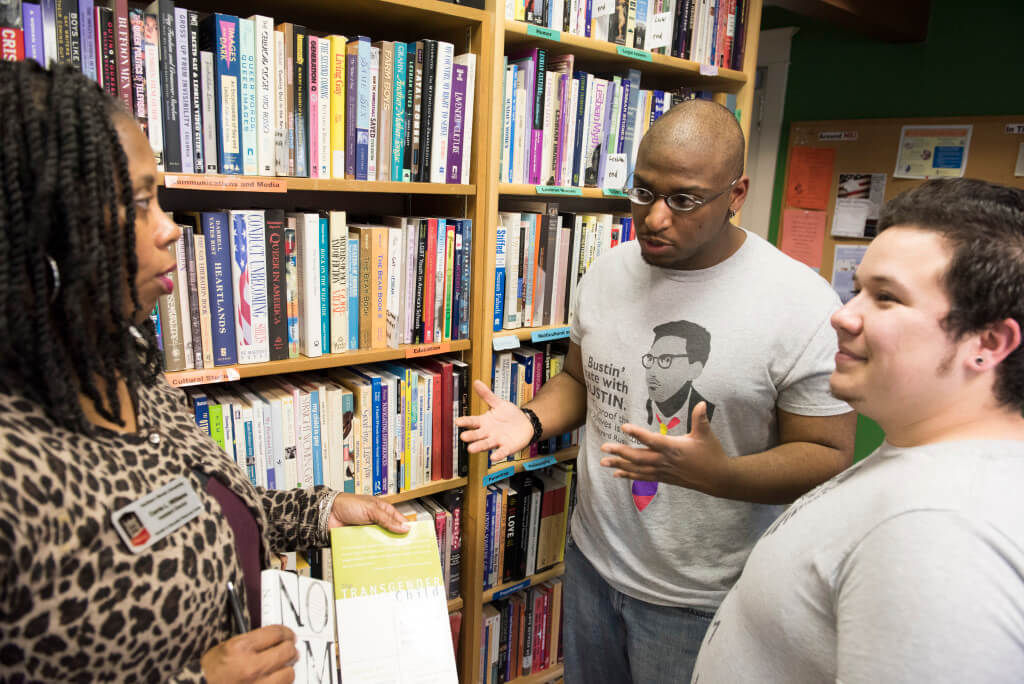June has been a momentous month for the LGBTQ community in America. The month began with the world being introduced to Caitlyn Jenner, and ended with Friday’s news that the Supreme Court struck down all bans on gay marriage. The flood of news has put issues of that community front and center.
After decades as a little-discussed (and often misunderstood) topic, transgender society in America is front-page news.
Former Olympic hero and male archetype, Bruce Jenner, is on the cover of Vanity Fair magazine officially coming out as transgender, inviting the world to meet her new identity, Caitlyn; transgender actress Laverne Cox is being celebrated for her role as a transgender inmate in the popular Netflix television series “Orange is the New Black”; and former child pop star Miley Cyrus revealed in an interview that she considers her gender neither male or female.

Transgender celebrities, such as Caitlyn Jenner, have made headlines lately, generating much talk about transgender individuals in socieity.
Most (but by no means all) of the public response to those three individuals has been positive.
However, the conversations behind closed doors may be quite different, says Kristen Myers, director of the Center for the Study of Women, Gender and Sexuality at NIU, whose research interests include the language of racism.
“When it comes to Caitlyn Jenner, you’re hearing a lot of ‘Good for her!’ However, my belief is that, just as with racist language, a lot of people are saying very different things in private,” she says. “People are careful not to say certain things in public, because they want to fit in. If you bash Caitlyn in public you are considered a bigot. Among friends it may be a different story.”
That would not be surprising, she says because gender, even more so than race, is a topic that hits people on a visceral level.
“We all perform gender,” Myers says. “It’s a social construct that we made up and then forgot that we made it up. We wear certain costumes, we choose to mark our bodies in certain ways. None of those things has to be important, but we choose to make them so. And when people choose to ignore those rules we have been taught to perceive it as threatening to the whole system.”
That is not to say that the recent attention paid to the transgender community has been a bad thing.
Myers says that the positive public reception of Jenner is indicative of increasing acceptance of other members of the LGBT community, noting that gay marriage is now accepted in 37 states (Note: This story was published prior to the Supreme Court decision legalizing gay marriage.) and the military has struck down its don’t-ask-don’t tell policy. Earlier this month, the American Medical Association passed a resolution saying that there is no valid medical reason to ban transgender persons from serving in the U.S. military.
“There seems to be an increasing willingness to recognize things that were closeted just a few years ago. And once you learn that it is out there, it’s not so scary,” Myers says.
Molly Holmes, director of NIU’s Gender and Sexuality Resource Center, which serves as a central location for resources and support for the university’s lesbian, gay, bisexual, transgender and queer communities (and their allies), agrees that the attention to Jenner, Cox and other transgender celebrities is a net positive. “Any time there is a story like this, it boosts the visibility of the transgender population,” she says.
“Caitlyn’s celebrity, and the fact that she is making this transition in such a visible way, gives us an opportunity to check in and see how accepting we are as a society and to think more critically about how we can be more supportive and better allies,” says Holmes.
The GSRC works to educate the campus community about inclusion for all gender and sexual identities at NIU. For transgender students specifically, there is a social organization, Transitions, where students can meet and learn from others who have similar experiences. The center also provides resources to help students address issues such as alerting professors to their preferred name if it differs from official university lists, so that they are not inadvertently “outed” in class. They also offer a primer for instructors navigating gender identity in the classroom.
The center also offers training to help faculty and staff on campus become better allies to the transgender population. Offered for the first time last year, the sessions filled up within 24 hours of opening for registration in each of its first two semesters, with more than 100 people completing the training.
Such efforts have helped NIU gain a rating of 4.5 out of 5 on the Campus Climate Index, which rates how inclusive a campus is for its LGBTQ community. Holmes expects that rating might go even higher after NIU opens its first ever LGBTQ floor in university housing this coming fall.
Phill Banion is an intern at the center, who is also transgender (Banion is “trans non-binary,” not identifying strongly with either males or females. As such, Banion, prefers non-gender specific pronouns they, them and their.) Banion became aware of their gender identity during their college years. During that time they took advantage of the supportive atmosphere of the GSRC, participating in the Transitions group and generally getting to know themselves and other transgender individuals. Eventually, they not only came to understand themselves differently, but also discovered a career path.
“As I discovered my identity, I discovered my passion as well,” says Banion, who majored in public health. “I learned that I would like to work with LGBTQ students, and LGBTQ people in general. My internship has allowed me to learn more about how I can help and to interact with people and the great staff at the center.”
As the increased attention to transgender people in society, and the Caitlyn Jenner story in particular, Banion views it as a positive.
“We have so few advocates or role models to look up to,” they say. “Caitlyn Jenner is another foot in the door to show that transgender people are real and that we deserve acknowledgement, that we are simply a part of society that needs to be acknowledged.”


